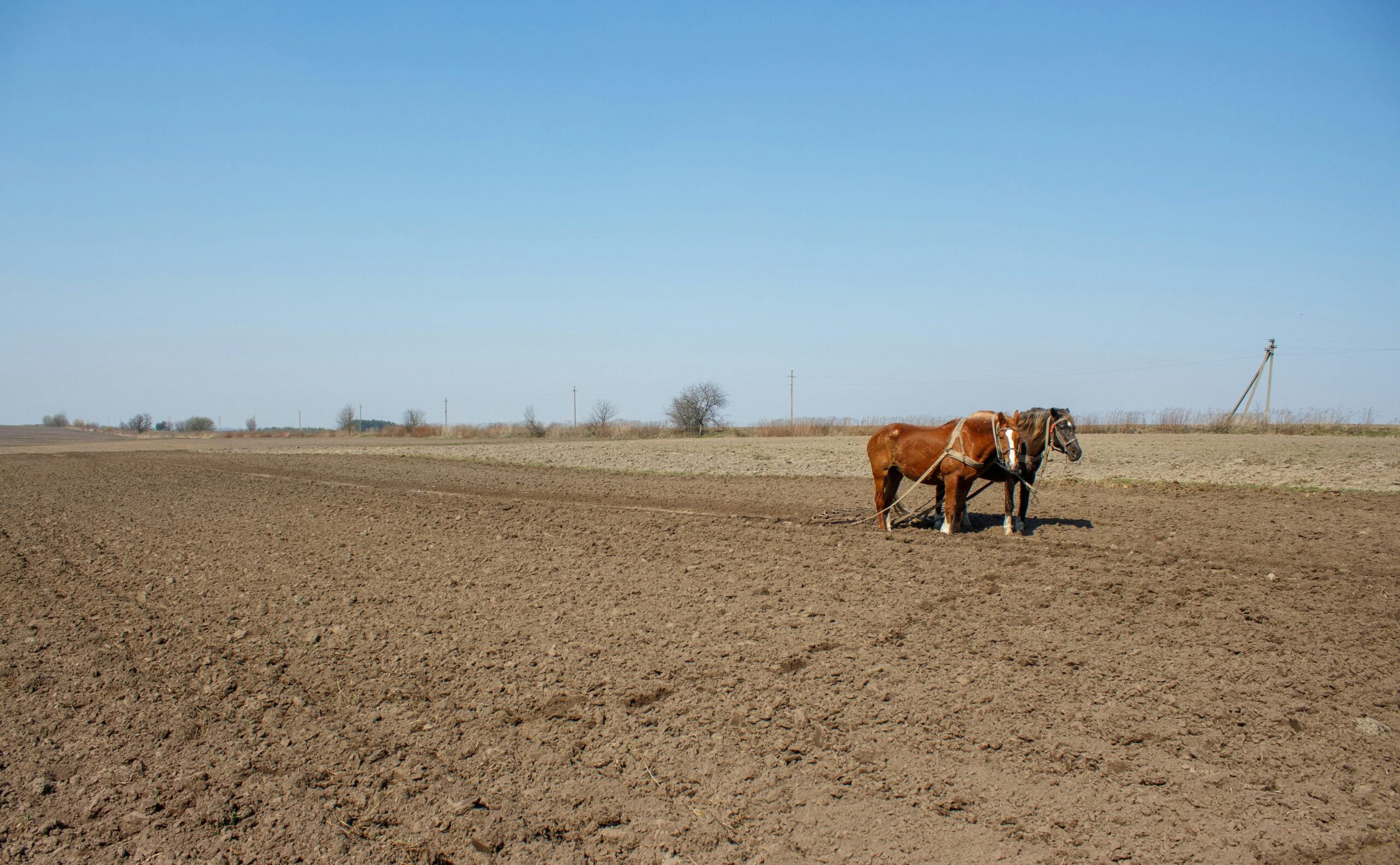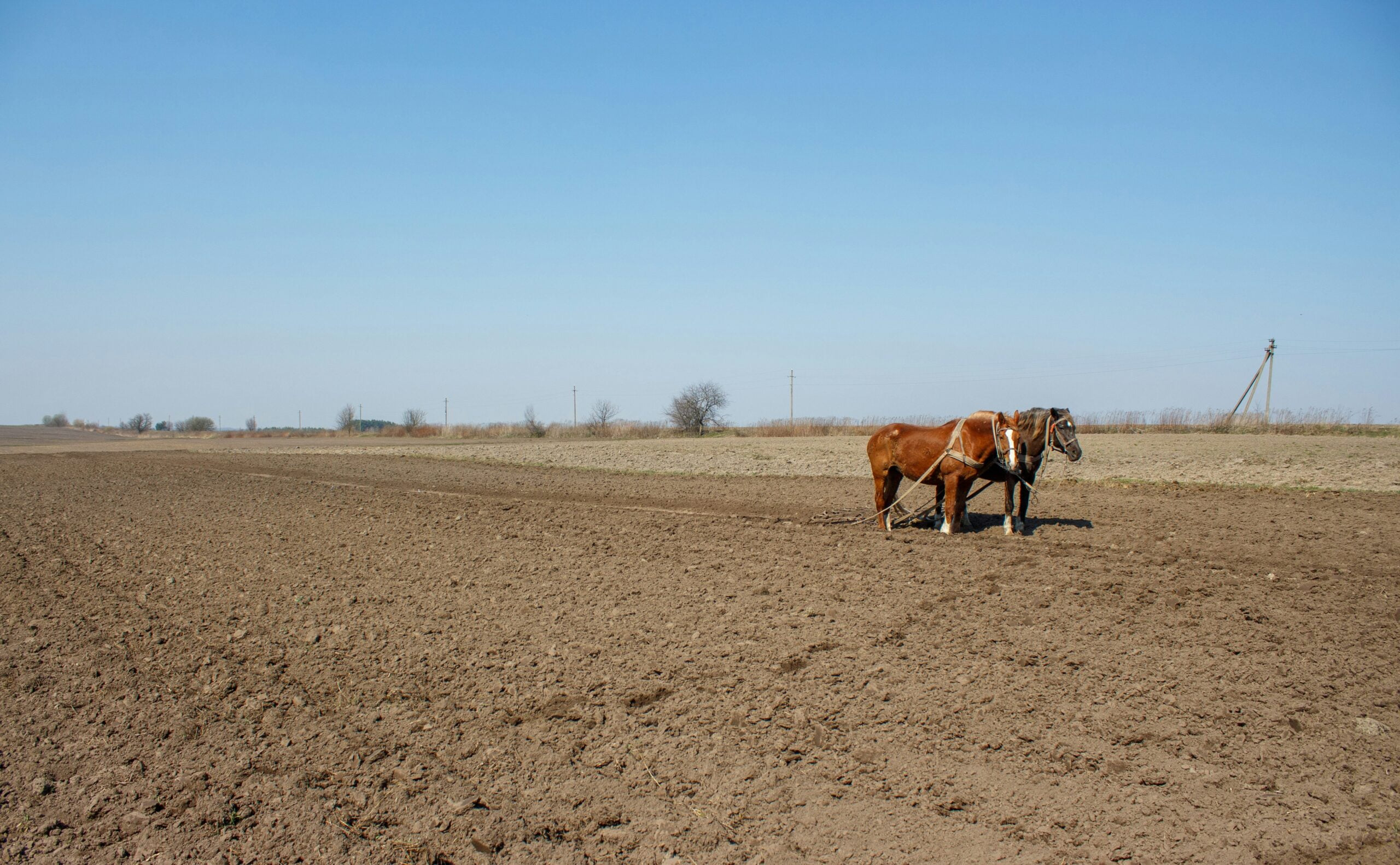Introduction to Farm Work in Canada
The agricultural sector in Canada plays a pivotal role in sustaining the nation’s economy, providing a significant share of employment opportunities and contributing notably to the country’s GDP. As a leading exporter of agricultural products, Canada’s farming industry spans a variety of sub-sectors including crop production, livestock, poultry, and dairy farming. The diversity within the agricultural sector ensures a wide array of job opportunities, ranging from manual labor positions to specialized roles in farm management and agronomy.
Individuals may be drawn to farm work in Canada for numerous reasons. The promise of competitive salaries, coupled with the chance to work in a dynamic environment, offers a compelling proposition for both local and international workers. Additionally, the benefits of immigration opportunities through programs like the Temporary Foreign Worker Program and the Agri-Food Immigration Pilot make Canada an attractive destination for those seeking long-term employment and residency.
The scope of work involved in the agricultural sector is broad, encompassing tasks that range from planting and harvesting crops to tending livestock and maintaining farm equipment. Workers may find themselves engaging in activities such as soil preparation, irrigation management, pest control, and animal husbandry, to name a few. These tasks demand physical resilience and a willingness to work in varying weather conditions, essential qualities for a successful farm worker.
General qualifications for farm work in Canada can be fairly accessible. While specific requirements may vary depending on the role, most positions require a basic understanding of farm operations and, in some cases, prior experience in agriculture. Training is often provided on-site, allowing newcomers to gain the necessary skills needed to perform their duties effectively. Moreover, proficiency in English or French can be an asset, enhancing communication within the team and ensuring a smoother integration into the workplace.
Types of Farm Jobs in Canada
Canada boasts a diverse agriculture sector, offering a wide range of farm jobs. Crop farming stands out as a prevalent option, involving activities such as planting, cultivating, and harvesting a variety of crops. This field demands considerable manual labor and expertise in operating machinery like tractors and combine harvesters. Alongside crop farming, dairy farming is another significant sector, where workers are primarily tasked with milking cows, feeding livestock, and maintaining the cleanliness of dairy operations.
Poultry farming offers yet another avenue for those looking to secure farm work in Canada. Typical duties in this sector include monitoring the health and well-being of birds, collecting eggs, and maintaining the cleanliness of poultry houses. Fruit picking is another popular job, especially in regions abundant with orchards and vineyards. Workers engage in harvesting fruits, such as apples, cherries, and grapes, ensuring they are handled carefully to prevent damage.
When discussing farm jobs in Canada, it is crucial to distinguish between seasonal and permanent positions. Seasonal farm work often aligns with specific harvesting periods, demanding a surge in labor for a few months of the year. These roles are particularly suitable for individuals seeking temporary employment or those on working holiday visas. On the other hand, permanent farm work offers a more stable and continuous employment outlook, often including roles like farm managers, machinery operators, and livestock handlers, requiring a higher level of skill and commitment.
The landscape of farm jobs in Canada is diverse, catering to various skills and interests. Whether one is interested in the hands-on labor of crop harvesting, the technical know-how needed in dairy farming, the care involved in poultry farming, or the meticulousness required in fruit picking, there are ample opportunities to explore a fulfilling career in agriculture.
How to Find Farm Work in Canada
Securing farm work in Canada requires a strategic approach, leveraging various resources and networking opportunities to maximize your chances of success. One of the most effective ways to find such employment is through online job boards specifically dedicated to agricultural jobs. Websites like AgCareers.com and WorkhorseHub.com offer a plethora of listings, ranging from seasonal positions to long-term employment opportunities in Canada’s diverse agricultural industry.
Recruitment agencies can also be a valuable resource in your job search. These agencies specialize in matching employers with suitable candidates, facilitating the application process, and providing insights into the job market. Agencies such as AgriRecruiting.com and Canadian Agricultural Human Resource Council (CAHRC) play a pivotal role in connecting job seekers with farm employers across the country.
Networking is another crucial element in securing farm work. Utilize social media platforms like LinkedIn to connect with industry professionals and join groups focused on Canadian agriculture. Attending agricultural fairs, conferences, and local farming events can provide you with direct access to employers and fellow job seekers, allowing you to build relationships and enhance your visibility in the sector.
For a more targeted approach, specialized websites such as GoodWork.ca and FarmLink.net list opportunities that cater specifically to agricultural employment. These platforms offer job seekers an easier way to navigate openings tailored to their skills and preferences.
In addition to exploring these resources, crafting an effective resume and preparing thoroughly for interviews requires attention to detail. Emphasize relevant experience, certifications, and skills pertinent to farm work. Highlighting specific knowledge in areas such as crop management, machinery operation, or animal husbandry can increase your attractiveness to potential employers. Before an interview, research the specific farm and its operations to tailor your responses to be both relevant and comprehensive.
By combining these approaches, you can significantly improve your prospects of finding farm work in Canada, positioning yourself as a competitive candidate in the agricultural community.
Compensation and Benefits for Farm Jobs in Canada
Farm work in Canada offers a diverse range of compensation packages, significantly influenced by the type of job and region. In terms of hourly wages, the rates generally range between CAD $11 to CAD $20 per hour. Entry-level positions such as fruit pickers or general laborers usually earn on the lower end of this spectrum, while more specialized roles such as equipment operators or farm supervisors can command higher wages, often reaching up to CAD $25 per hour. Annually, these figures translate to salaries ranging from approximately CAD $23,000 to CAD $52,000, with an average income typically falling around CAD $33,000.
Aside from the basic salary, several farm employers in Canada offer generous additional benefits to attract and retain workers. One common form of support is housing provisions. Many farms provide either free or highly subsidized accommodation, effectively lowering the cost of living for employees. The quality of such housing varies but generally includes the basic necessities required for comfortable living.
Another frequently provided benefit is food allowances. Some farms supply groceries, offer meal stipends, or even provide cooked meals to their workers, ensuring that the nutritional needs of employees are adequately met without extra burdensome costs. This perk is particularly valuable in remote farming areas where access to food stores may be limited.
Health insurance is another significant benefit that some farm employers extend to their workers. Comprehensive health coverage can include medical, dental, and vision care, which significantly enhances the overall job package. While not universally offered, when available, health insurance is a much-appreciated safeguard that supports the well-being of farmworkers.
In essence, securing a farm job in Canada can come with competitive wages and an array of additional benefits that enhance the financial viability and overall quality of life for farmworkers. By understanding the various forms of compensation available, prospective farm employees can make more informed decisions and seek out opportunities that best align with their financial and personal needs.
Immigrating to Canada as a Farmer
Canada offers a variety of immigration pathways for individuals aspiring to work as farmers or farm workers. Understanding these programs is crucial for a smooth immigration process. One notable option is the Temporary Foreign Worker Program (TFWP), designed to address labor shortages by allowing Canadian employers to hire foreign nationals temporarily. Under this program, employers must first obtain a positive Labour Market Impact Assessment (LMIA), which demonstrates the need for a foreign worker when no Canadian citizens or permanent residents are available for the position.
The Seasonal Agricultural Worker Program (SAWP) is another significant route for those seeking employment in Canada’s agriculture sector. This program is tailored for seasonal agricultural work, enabling employers to hire workers from participating countries such as Mexico and Caribbean nations for a maximum of eight months. Eligibility criteria include an offer of employment from a Canadian employer, a positive LMIA, and meeting the requirements set out by the Immigration, Refugees and Citizenship Canada (IRCC), particularly focusing on health and security clearances.
Beyond the TFWP and SAWP, there are additional immigration streams for prospective farmers. The Agri-Food Immigration Pilot is a targeted pathway that offers a route to permanent residency for experienced non-seasonal workers in specific industries and occupations within the agri-food sector. Applicants must possess a full-time job offer and meet language, work experience, and educational requirements.
The Rural and Northern Immigration Pilot (RNIP) is another innovative pathway aimed at attracting skilled workers to smaller Canadian communities. Farmers and farm workers who meet the program’s eligibility criteria can benefit from this opportunity, which not only supports immigration but also encourages community growth and economic development in rural areas.
Each of these programs has distinct eligibility criteria and application processes. Prospective applicants should ensure they thoroughly research and understand the specific requirements of their chosen pathway. Timelines can vary significantly, so early preparation and adherence to guidelines are paramount for a successful immigration journey to Canada.
Challenges and Rewards of Farm Work in Canada
Working in the Canadian agricultural sector comes with a unique set of challenges and rewards. One of the most significant challenges is the physically demanding nature of farm work. Workers can expect long hours of manual labor, often in varying weather conditions, from intense summer heat to cold, early-morning starts. The work is not only physically taxing but also requires a high level of endurance and resilience.
Potential risks are another aspect to consider when contemplating farm work in Canada. Agricultural workers regularly handle heavy machinery and equipment, which, while essential for the productivity of the farm, also pose safety hazards. Additionally, there is exposure to chemicals such as pesticides and fertilizers, requiring strict adherence to safety protocols. Despite these risks, many farm workers find that proper training and adherence to safety measures greatly mitigate these dangers.
However, the rewards of farm work in Canada often outweigh these challenges. On a personal level, many workers find a profound sense of fulfillment in knowing they are contributing to the food supply chain and sustaining communities. The hands-on, tangible nature of the work often brings immediate gratification and a sense of accomplishment. Financially, farm workers in Canada can earn competitive wages, and in some instances, benefits such as housing and meals are provided, which can significantly reduce living expenses.
Testimonials from those who have worked in Canada’s agricultural sector underscore these points. One former worker, John, states, “The work was tough, and the hours were long, but the experience was incredibly rewarding. I built strong relationships with my coworkers and gained invaluable skills.” Another worker, Maria, shares, “While safety was a concern, the training we received was excellent, and I always felt prepared. The pay and benefits made it worth it, and I felt proud of the work I did.”
In conclusion, while farm work in Canada presents various challenges, the rewards—both personal and financial—can be substantial. Adequate preparation and a clear understanding of what the job entails can help prospective workers successfully navigate the demands of this essential sector.
Average Salary for Farmers in Canada
The average salary for farmers in Canada varies significantly depending on multiple influencing factors, including the province, type of farming, and market conditions. Based on recent surveys and government statistics, a comprehensive understanding of these variations can help prospective farmers make informed decisions.
In terms of provincial disparities, farmers in Alberta and Saskatchewan tend to earn higher averages compared to other regions, primarily due to the abundance of arable land and robust agricultural infrastructure. For instance, in Alberta, the average annual salary for a farmer is estimated to be around CAD 65,000, while in Saskatchewan, it stands at approximately CAD 60,000. On the other hand, provinces like Prince Edward Island and Nova Scotia offer lower averages, with estimated annual earnings around CAD 40,000 and CAD 42,000, respectively.
The type of farming also plays a crucial role in determining income levels. Farmers engaged in crop farming, particularly those cultivating high-demand grains like wheat and canola, generally see higher revenues. For example, grain farmers in the Prairies may see annual earnings ranging from CAD 55,000 to CAD 70,000. Conversely, livestock farmers, particularly those focused on dairy or beef cattle, tend to have slightly varied incomes due to fluctuating market prices for meat and dairy products. Dairy farmers can expect average salaries around CAD 50,000, whereas beef cattle farmers might see a range between CAD 45,000 to CAD 55,000 annually.
Other determinants of a farmer’s salary include the size of the farm and prevailing market conditions. Larger farms often benefit from economies of scale, potentially leading to higher profits and salaries. Additionally, market conditions such as commodity prices, supply-demand dynamics, and trade policies can substantially impact income. For instance, a rise in global demand for Canadian wheat can elevate farmer profits significantly.
Understanding these varied factors provides a holistic view of what prospective farmers can expect in terms of earnings across Canada. Accurate and current data are essential for making well-informed decisions about entering the agricultural sector in different regions of the country.
Conclusion: Is Farm Work in Canada Right for You?
Choosing to pursue farm work in Canada presents numerous opportunities for those interested in the agricultural sector. As discussed throughout this article, the advantages include competitive salaries, diverse job roles, and straightforward pathways to secure positions either through temporary work permits or permanent immigration options. Canada’s robust agricultural industry offers not only financial stability but also a platform for meaningful contributions to sustainable farming practices and rural community development.
Prospective farm workers should carefully consider their long-term career goals. The agricultural sector in Canada is growing, driven by technological advancements and an increasing focus on sustainable practices. This growth implies not only job security but also potential for career advancement within the industry. Positions in farm management, agricultural technology, and research are becoming gradually more available, appealing to those looking to evolve professionally within the sector.
Another critical factor to assess is lifestyle and working conditions. Farm work typically involves physical labor and a commitment to outdoor activities in various weather conditions. It may also mean residing in rural or semi-rural areas, offering a distinct lifestyle compared to urban living. This environment can be a significant draw for individuals seeking a closer connection to nature and a slower pace of life, but it may not suit everyone. Work-life balance, access to amenities, and social opportunities in these settings should be evaluated to match personal preferences.
In conclusion, farm work in Canada provides a rewarding option for those aligned with the demands and rewards of agricultural employment. Between stable financial prospects, career growth opportunities, and distinct living environments, it is an appealing choice for many. Reflecting on personal and professional aspirations will help in determining if this path aligns with your vision for an enriching and sustainable future.





